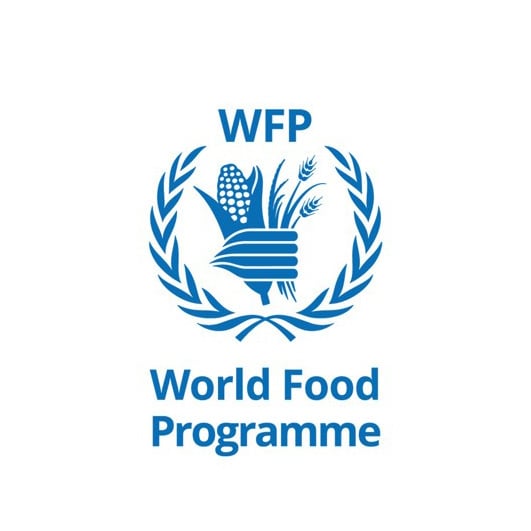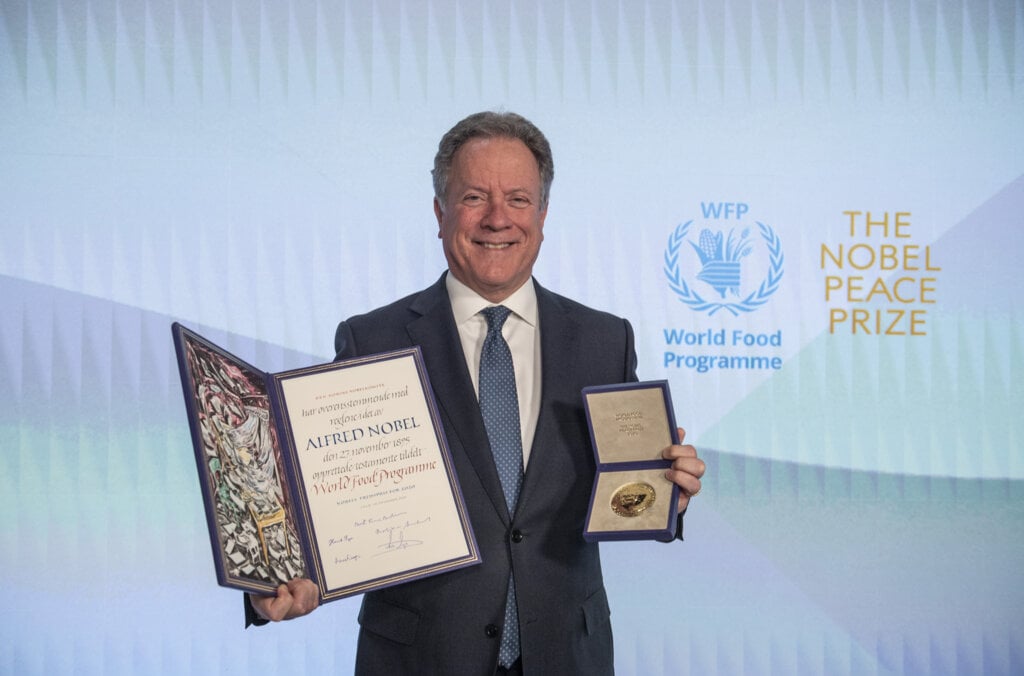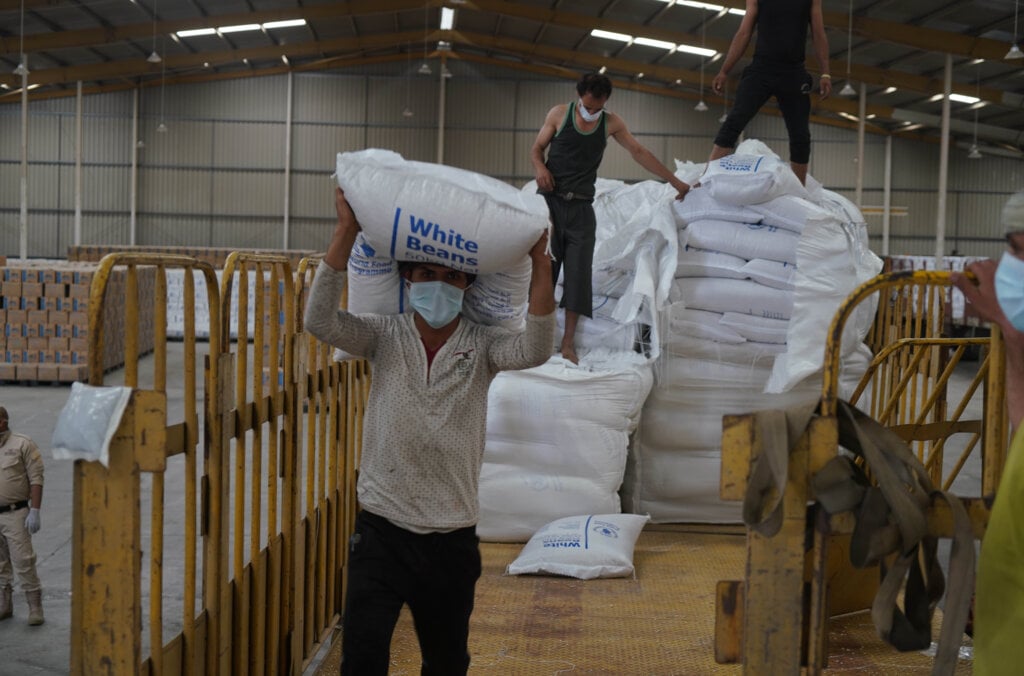World Food Programme
Speed read
The World Food Programme was awarded the Nobel Peace Prize for its efforts to combat hunger, for its contribution to bettering conditions for peace in conflict-affected areas and for acting as a driving force in efforts to prevent the use of hunger as a weapon of war and conflict.

Full name: World Food Programme (WFP)
Native name: World Food Programme (WFP)
Founded: 1961
Date awarded: 9 October 2020
Without food, no peace
The World Food Program (WFP) was started in 1961, as an experiment to see if food could be distributed efficiently throughout the world using the United Nations (UN) system. There was no shortage of places in need of food aid, and the WFP took on the task of securing food supplies to those in need around the globe. Their task was to continue until the day such work was no longer necessary, and this day has yet to come. Of course, food security – having reliable access to affordable and nutritious food – is about much more than just handing out food. The WFP also helps farmers to continue growing food when natural disasters happen, provides children with school meals, and does many other things to provide good and nutritious food to the peoples of the world.
"Food is the best vaccine against chaos."
- David Beasley, Executive Director, World Food Programme.
A timely and crucial prize
In a world that produces enough food for everyone, 690 million people still go to bed hungry every night. Covid-19 has worsened the situation of the world’s poorest, and the WFP says that the need for food aid has greatly increased. The pandemic has shown how important it is that countries cooperate in times of crisis. The WFP has been the UN’s most important logistics coordinator during the coronavirus crisis and has delivered large amounts of infection control equipment to countries in need. It has also developed new methods that allow people to avoid infection when food aid is being distributed. WFP Director David Beasley says, “Until we have a vaccine, food is the best vaccine against chaos.”

"War and conflict can cause food insecurity and hunger, just as hunger and food insecurity can cause latent conflicts to flare up and trigger the use of violence."
- Berit Reiss-Andersen, Nobel Peace Prize prize announcement, 9 October, 2020.
Fighting hunger = fighting for peace
The link between hunger and armed conflict is a vicious cycle: food shortages can trigger violence and war, and conflict can lead to food shortages and hunger. Countries with long-term crises and conflicts have almost three times as many people who suffer from hunger and malnutrition. Food shortages were among the causes of several well-known conflicts and wars, such as the French Revolution, the Arab Spring and the civil war in Syria. War often brings local food production to a stop, and makes it difficult to import food. The food that is available then becomes very expensive. It is often hunger, not weapons, that kills most people in a conflict.
| Food security The state of having reliable access to a sufficient quantity of affordable, nutritious food. |

International cooperation
Since 2015, food shortages and hunger have become a growing problem. The consequences of food shortages and deficient food are not only hunger, health problems and war. They also affect education and job opportunities. The Nobel Committee emphasised the need for international cooperation and financial support for the WFP and other aid organisations. The World Food Program mobilises all 193 UN member states in the fight for global food security. Through its work around the world, the WFP contributes to the “fellowship among nations”, one of the criteria for the peace prize that Alfred Nobel referred to in his will.
"You can’t build peace on empty stomachs."
- John Boyd Orr, Nobel Peace Prize 1949.
"The first essential component of social justice is adequate food for all mankind."
- Norman Borlaug, Nobel Peace Prize lecture, 11 December 1970.
Learn more
Read or watch the Nobel Prize lecture by David Beasley, Executive Director of the World Food Programme.
Disclaimer: Every effort has been made by the publisher to credit organisations and individuals with regard to the supply of photographs. Please notify the publishers regarding corrections.
Nobel Prizes and laureates
Six prizes were awarded for achievements that have conferred the greatest benefit to humankind. The 12 laureates' work and discoveries range from proteins' structures and machine learning to fighting for a world free of nuclear weapons.
See them all presented here.
